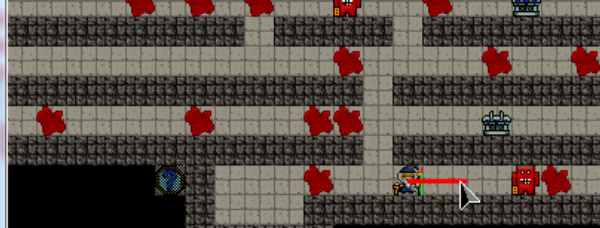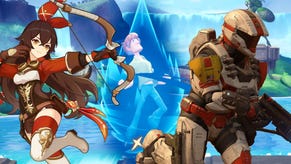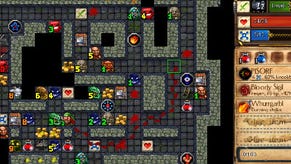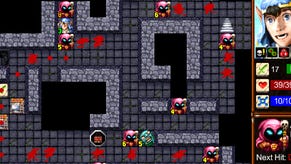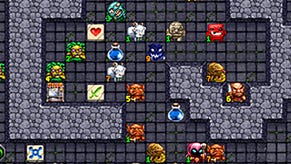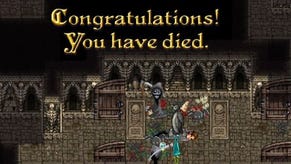Scratching The Surface: Desktop Dungeons
Tim Ashcroft gave me the nod on this, which I'd spotted around but hadn't actually got around to playing. As usual, more fool me. Desktop Dungeons is a short-form rogue game, with almost everything you'd expect in a more traditional game crammed into something you can burn through in 10 minutes. It ends up feeling like a cross between a Rogue game and Minesweeper, with a splash of Patience. I suspect many of you will find a permanent space for it on your laptop, and I explain why below...
It's an odd one. It's a game which I respect intellectually more than I love emotionally. It's simply a very clever piece of design. The basic idea, like a rogue-like, is that you're dumped in a randomly generated dungeon and have to explore it. You find stuff and it makes you more powerful. You kill stuff and it makes you more powerful. Eventually you get so powerful you take on the big boss and win the game. Desktop Dungeon crams that in one level - but to make it work (i.e. So high level creatures just don't kill you) lets you take the lead. So monsters just sit there waiting to be challenged rather than hunting you down.
The maths on taking out a monster is absolutely clear, so - assuming you're willing to do the maths - you know before clicking whether you can do enough damage to triumph in a combat. The game even gives the results of the next blow for you - as in, telling you whether you're going to live or die. So, assuming you can't kill them, you explore a little trying to find something else to help - or beat on lesser creatures until you deal with the harder ones. This is where the minesweeper references comes in - as in, you're trying to figure out exactly what you have to do to remove these blockages. If I kill these 3 lower level monsters, will I have enough to deal with the higher one? And - key question - what's the best way I can do this to maximise my experience and/or stats growth. Taking out a higher level enemy is tricky, but pays off which much more stats. Is it worth using your healing potions to do that, or should you save them for final battles.
Even whether you should explore of not is key. Health and mana regeneration is tied to discovering new areas on the map. If you're moving around the previously explored sections, you don't gain back any of your vitality. In other words, you almost certainly only want to explore the absolute minimum of the area at any time to deal with the threats you've exposed. Otherwise, you're using up one of the only healing resources in the game. In other words, every single decision you make in the game impacts on whether you'll succeed and fail. The one time I've managed to win came down to the very last click - and if I was another character class than the warrior I played, I'd have failed. The "Pit Dog" ability to survive the first death-strike you receive in the game was all that kept me on my feet. In other words, it's a very hard game.
It's also occasionally an impossible game, which is where we tie to Patience - and, I suspect, why I admire rather than love the game. Occasionally you simply are screwed. There's been at least one game I've played where all my routes to explore were blocked by high level creatures which I simply couldn't handle and there were no tools around to help. Expand that to the end-game, and it can be incredibly punishing. I've won by a single click, yes - but I've also lost by one where I realise, all too late, that I should have attacked one monster before the other and now I just have to cash my chips and retire.
A few things save it. Firstly, it's such a short-form game that it's not as if you're throwing away anything significant. Much like Patience, if the cards turn up bad, reshuffle and try again. Secondly, while the random nature of the game can make things impossible, I've yet to play a game where I've just romped to an easy victory. That every decision can lead to disaster means that your attention is neatly focused - it should be stressed, as compared to other short-form games with similarly cute graphics, this isn't a casual game ala Minesweeper. This is rock hard. Thirdly, it embraces all sorts of rewards for playing. A simple yet powerful unlocking system is including, rewarding you to experimenting with alternative character types, new dungeons and similar. The game gets ever more complicated the more you play it. I takes a lot from the Rogue games, but puts its own determined spin on it.
As I said, this is a extremely smart design, and worth your serious attention. Go play.


